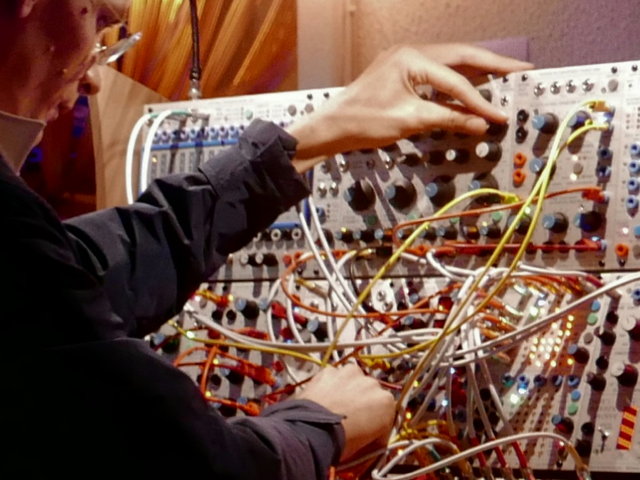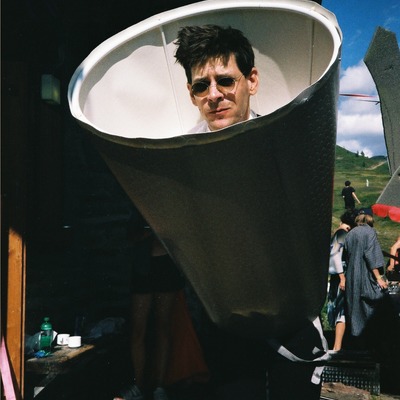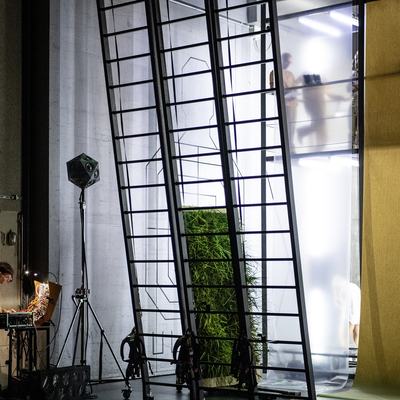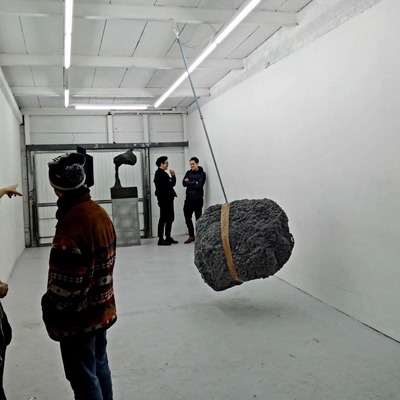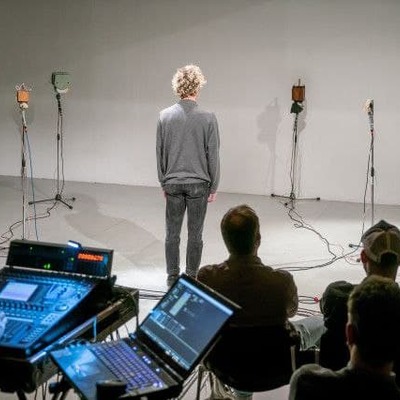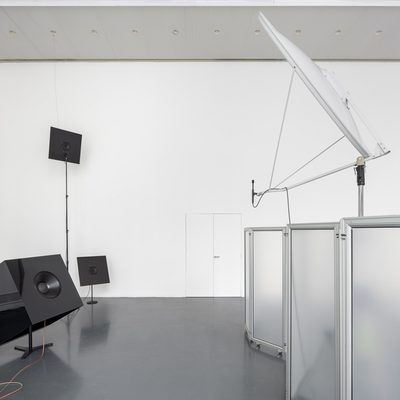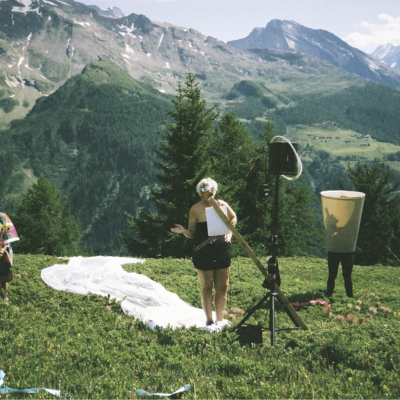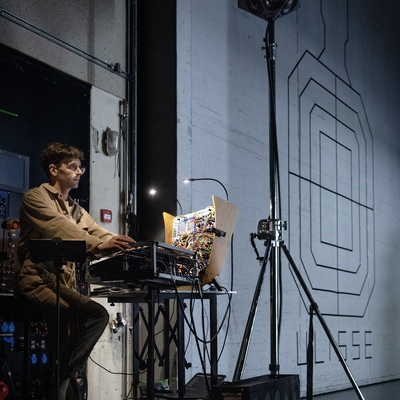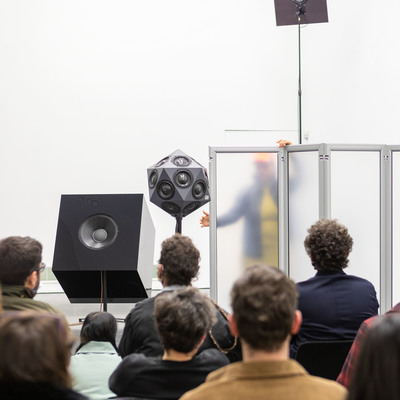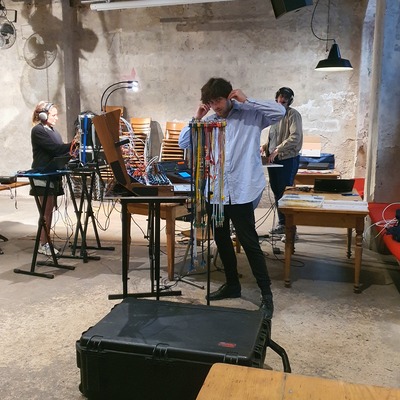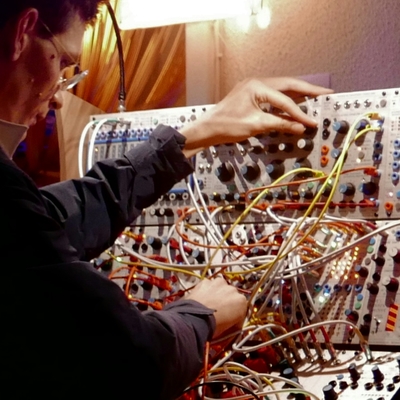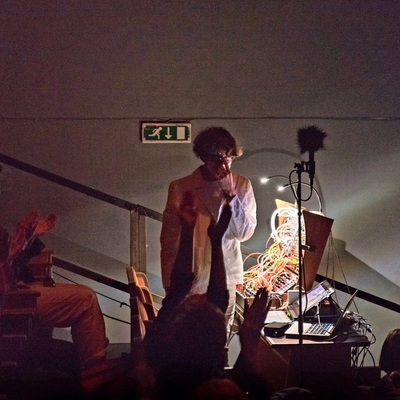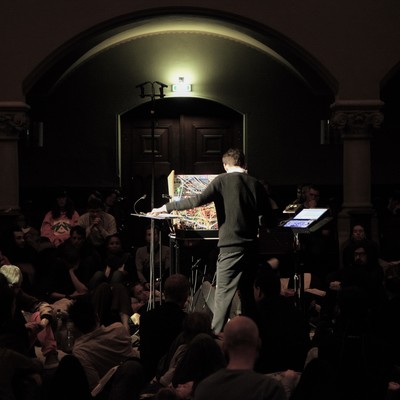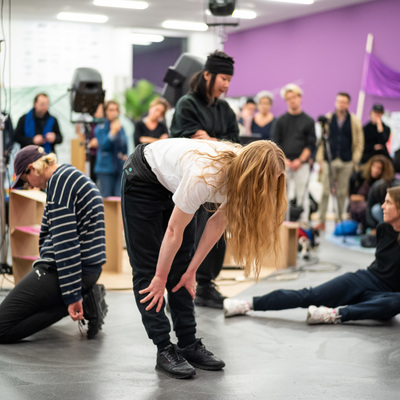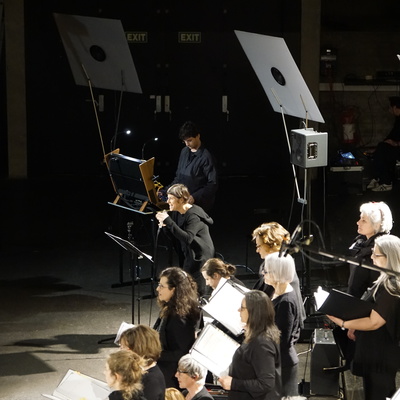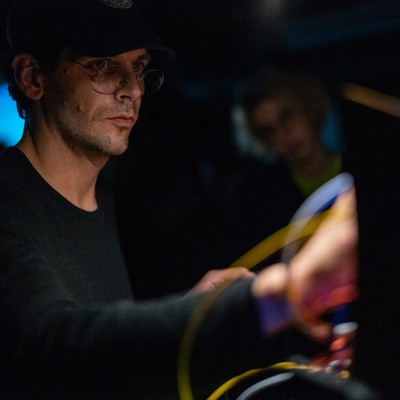Biography
Nikki Buzzi is a composer, performer and sound artist based in Zurich, Switzerland and Frankfurt am Main, Germany. Their work spans various fields including music, installation art, media art, performing arts, film and education. They hold an MA in Electroacoustic Composition and currently act as technical director of the Studio for Electronic Music and Acoustics at the HfMDK Frankfurt. Buzzi focuses on the potential of appropriation and the use of advanced technological knowledge to negotiate cultural prepositions, artistic practices, skill, aesthetics, perception, and historical ballast of cultural practices that are rooted in the timelines of European art music. Buzzi's solo and collaborative practice produces artifacts that are often site-specific, performance-oriented, and closely related to acoustic phenomena and perception mechanisms.
Buzzi's work is or has been practiced or presented at the Venice Architecture Biennial, HKW Berlin, Istituto Svizzero Milano, NUP Tallinn, Kunstmuseum Basel, Musikfestival Bern, NAC Lithuania, São Paulo Architecture Biennial, Schauspielhaus Zurich, Science Gallery Bengaluru, Theater Basel, Württ. Kunstverein Stuttgart, ZKM Karlsruhe.
 Sign in
Sign up
Sign in
Sign up



 Tristan MurailComposition, Orchestra
Tristan MurailComposition, Orchestra